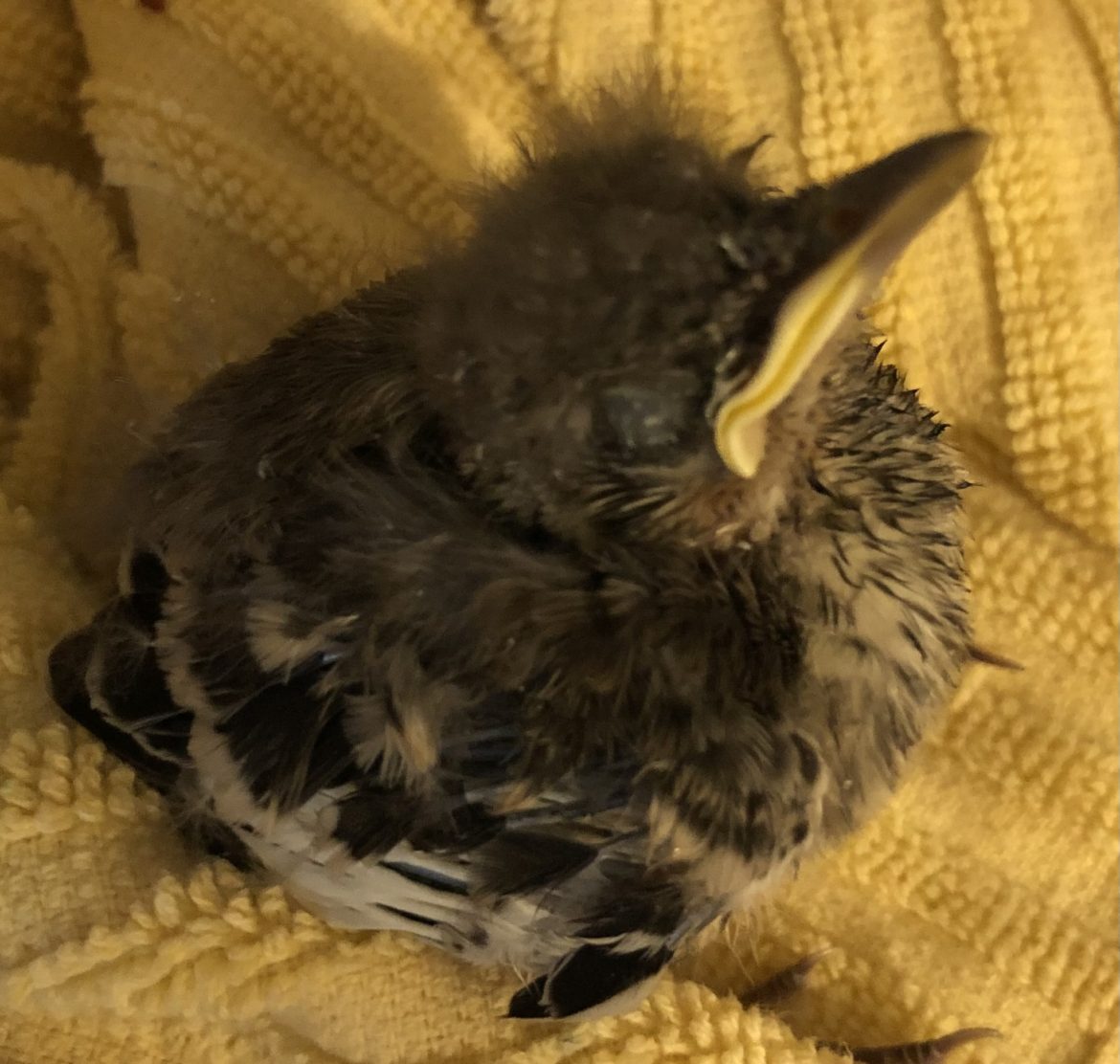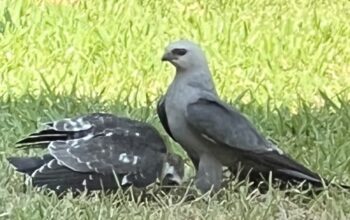I generally do not take in little song birds but this spring there was a need and I heard myself say “sure I can do this”. And the phone calls began! “I found a baby bird, will you take it?” Then the challenges begin with a series of questions to determine the need. What the “rescuer” fails to realize is that not all the birds on the ground need to be assisted. Most, especially fledgling don’t.
Baby birds all over the world learn to fly by jumping out of the nest. They leave the shelter of the nest, the assurance of food and protection for the hard ground below.
When rescued the baby birds imprint, that means they now look at a human as their parent and can become permanently dependent. We can not teach a baby bird that it’s a bird, how to find food, shelter and a mate. They can fly at roughly 6 weeks and if they are released then, they die slowly of starvation. I keep a cage with food and water out for at lease a year. Migratory little birds do not learn to migrate from a human and tend to stay close to the release area.
I enjoy all the calls and welcome the opportunity to talk about the options for the long term success of the bird. Yes, people occasionally get very annoyed. They want to be the hero that RESCUED the little bird but they want me to treat, feed and shelter it for months or more. All the rehabbers you call are volunteers! We buy food, medicine and cages for whatever we rescue. And in the case of birds, the babies must be fed hourly from sun up to sun down. Mammal babies are on bottle feedings for months and when you have HUNDREDS of babies to feed, there is not time for anything else.
So when you are asked to put the baby back and walk away, please understand why we are asking you to do it.





